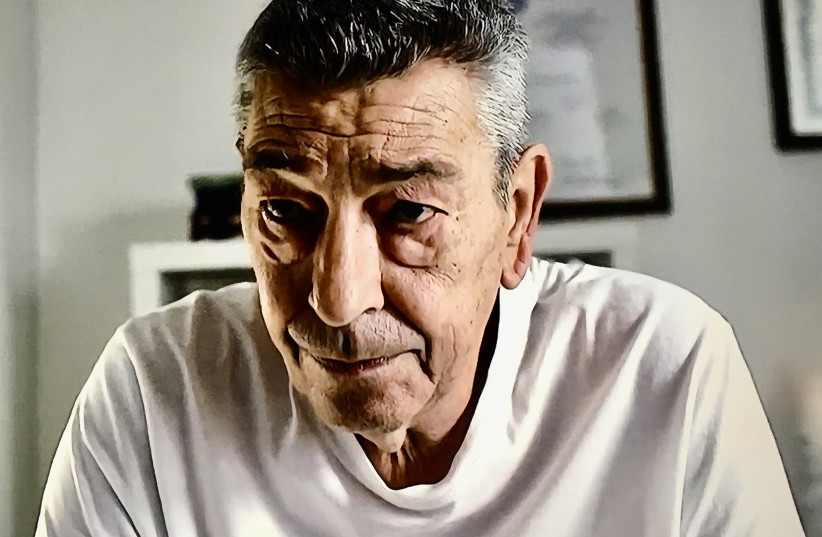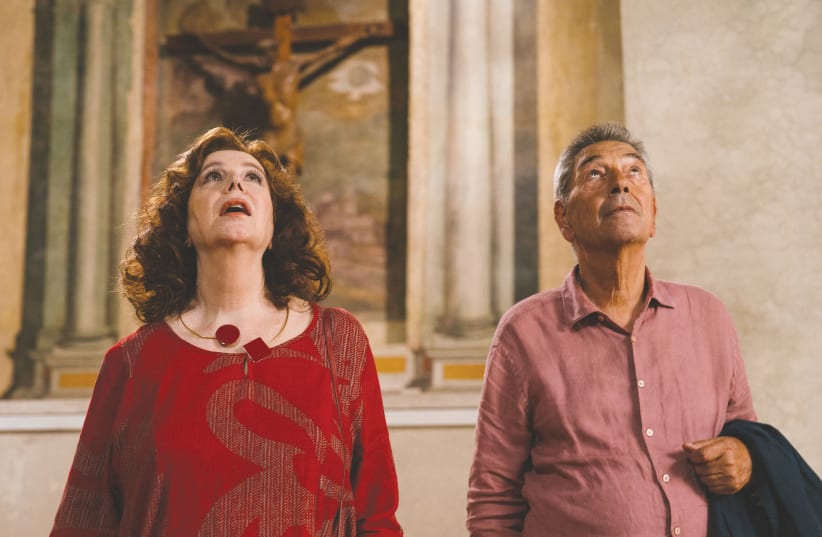‘It’s not complicated, it’s simple, you only have to open your eyes,” says Astolfo (Gianni Di Gregorio) the sad-sack hero of Astolfo, a low-key new dramedy from Italy that opened at theaters around Israel on November 16.
He is talking to a woman he has met who has made him fall in love for the first time in decades, but this simple phrase is also the underlying theme of the movie, that people can change their lives meaningfully simply by deciding to do so.
Astolfo is the latest film by Di Gregorio, a writer/director who often stars in his own films. Through his movies, he has become the voice of Italy’s older generation, who have been cast aside in the rush to modernize and embrace the digital economy, and who no longer have the financial security that they had been sure would be there for them as they retired. In his 2019 movie, Citizens of the World, he and two retired friends, struggling to get by in Rome, tried to make a life for themselves abroad. In the 2011 movie, The Salt of Life, which Di Gregorio presented at the Jerusalem Film Festival, he played a retiree devoted to his domineering mother, who tried to find love.
In Astolfo, he plays almost the same character, although by now he is 70 and his mother is no longer in the picture. Astolfo is a retired professor in Rome who has settled into a quiet routine, but this is interrupted when his landlord tells him he must move out because she needs the apartment for her daughter who is about to have a baby. Clearly, he has some kind of arrangement where he has been paying a very low rent and there is nothing else that he can afford in the capital. So he takes off for a crumbling palace in the country that his once-wealthy family still owns.
But there are problems from the get-go. The church, in the form of a busybody priest, has taken over part of his property, as has the local mayor. The section of the house that is still his has no electricity, and there is a squatter living there, a kind of lovable loser. Astolfo soon invites another few men who are in the neighborhood, both old and young, to move in, and they begin to fix it up.


The real fun is seeing Di Gregorio and Sandrelli together
But the movie really gets going when he meets Stefania (Stefania Sandrelli), a widow around his age from a wealthy family. The two are smitten with each other, and it seems that a late-in-life love story will blossom. But her children see the extremely unassuming Astolfo as a kind of fortune-hunter and conspire with the priest to break them up.
Astolfo is such an appealing character that there isn’t a huge amount of suspense as to how all this will end, but is enjoyable to watch it play out. There are many lovely Italian vistas and the palace itself, even though it is falling apart, looks very welcoming. But the real fun is seeing Di Gregorio and Sandrelli acting together. Di Gregorio has a gentle but faded presence, a much lower-key version of another Italian director who tends to play characters based on himself, Nanni Moretti.
Sandrelli is a legendary Italian actress who appeared opposite Marcello Mastroianni in Divorce Italian Style, as well as in such classics as Bernardo Bertolucci’s The Conformist and Ettore Scola’s We All Loved Each Other So Much. It is always a pleasure to see her grace on screen.
The essence of the movie is a scene in which Astolfo laughs over the fact that his ex-wife has been very happy since she left him, and then notes that he is really happy today, with Stefania. She points out that it is a beautiful day, but he says it would be beautiful even if it were raining. “There are times when one feels a new desire, the need to start afresh, to give meaning [to life],” he tells her.
If those words speak to you, then you will enjoy this gentle but slow-paced film, and if not, you might want to wait till it’s streaming somewhere to see it.
